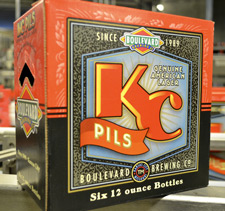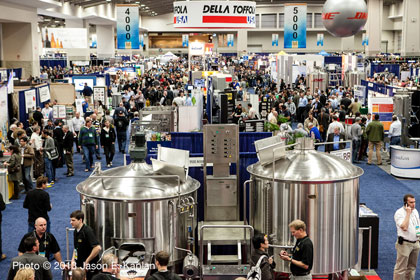Brew Hub has announced plans for the company’s first brewery in Lakeland, Fla. The Florida brewery will be the first of at least five planned facilities that will offer craft brewers the opportunity to “partner brew” their beers on site.
Partner brewing is designed to allow craft breweries to brew their beer to exact specifications under the supervision of their own brewmaster and to package and distribute from the Brew Hub brewery, additionally making beer available for export to international markets. This allows craft breweries to expand their distribution without the overhead costs of building a new brewery or transporting beer across the country.
The Brew Hub will also offer craft breweries services including sales, marketing, logistics, legal, and government affairs.
The Lakeland brewery will be located in Interstate Commerce Park off the I-4 Corridor and will have an initial brewing capacity of 75,000 barrels, or one million cases, annually. The site’s central location will allow the company to efficiently distribute beer to wholesalers throughout Florida and the Southeast.
Brew Hub brewing operations will be led by chief brewmaster Paul Farnsworth, who will oversee all aspects of design, layout, construction and day-to-day operation of the new brewing, production and warehouse facility in Lakeland. Farnsworth earned a bachelor’s degree and Ph.D. from the University of London and has been instrumental in the startup or operation of over 100 breweries in 10 countries.
Brew Hub was founded by a team of former Anheuser-Busch executives led by Tim Schoen. Schoen, CEO, Jerry Mullane, President and Mark Greenspahn, Vice President of Operations. Brew Hub is supported by financing from The Yucaipa Companies of Los Angeles.
“Brew Hub will allow great craft brewers to grow their businesses by expanding into new markets they otherwise could not reach,” said Tim Schoen, chief executive officer of Brew Hub. “This is the most exciting time in history to be in the beer business. Beer drinkers are constantly looking to discover new beer styles and brands every chance they get, but many of the beers they love aren’t available where they live. We’re planning to change that in the Southeast and across the country.”
Brew Hub plans to open at least four similar facilities over the next five years. Specific markets will be determined based on demand, but the company is considering strategic locations in the Northeast, Mid-Atlantic, Midwest, Texas and West Coast.
“There are so many craft brewers making amazing beer today, and the demand from consumers is almost insatiable,” said Schoen. “But too much demand can also be a problem. Building a brewery is not realistic for many brewers and contract brewing opportunities that exist today are less than ideal. We believe our partner brewing model will allow craft brewers a great opportunity to expand their business and reach new consumers.”
The company will begin building the Lakeland brewery, packaging and cold storage warehouse in April. The site will operate as a central distribution facility for craft brewers beginning in fall 2013. The Lakeland facility will deliver beer to wholesalers throughout Florida and the Southeast and will begin brewing beer in summer 2014.
Brew Hub was founded in 2012 in St. Louis, Missouri by a team of beer industry executives and craft brewing experts led by Tim Schoen. “Where Craft Brewers Go to Grow,” Brew Hub provides full brewing, packaging, distribution and selling services for craft brands that are capacity, geographical, or capital constrained. The company plans to have five breweries located throughout the country that will cater to craft breweries. Each facility will allow craft brewers to partner brew their beers on site.

 Boulevard Brewing Company in Kansas City has renamed Boulevard Pilsner, put it in a new package and promised Kansas City residents it will share 10% of sales of the new KC Pils.
Boulevard Brewing Company in Kansas City has renamed Boulevard Pilsner, put it in a new package and promised Kansas City residents it will share 10% of sales of the new KC Pils.